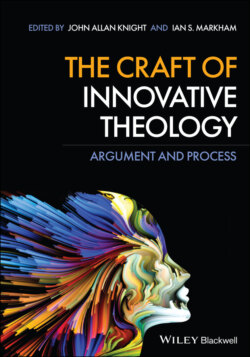Читать книгу The Craft of Innovative Theology - Группа авторов - Страница 49
The Use of Biblical Teachings in Arguments about Slavery Biblical Teachings on Christian Charity and the Golden Rule
Оглавление(See Box 3.2.) The SBC and other southern denominations that separated from Northern denominations over slavery in the late 1830s and early 1840s wrestled not only with whether slavery was part of the divine order of God but also over the nature of Jesus’s teachings on love, charity, and the Golden Rule. One way religion has supported structures of oppression, such as slavery, has been to limit how the love of Jesus would be distributed and how the Golden Rule should be applied, based on a person’s or group’s racial or ethnic status. If these teachings applied completely and universally to African Americans, then slavery was a sin. However, if African Americans were not regarded as fully human, and therefore were valued less than whites, then these teachings had only minimal or no application to the enslaved.
Box 3.2
The author is making good use of subtitles. This is the first subtitle after the introduction. The focus is on how the Golden Rule is used in debates around slavery. The great advantage of the subtitle is that you know exactly where you are in the paper.
Some believed these Christian teachings applied universally and did everything possible to help African Americans overcome cultural and Christian barriers to equality. As they saw it, slavery was contrary to the teachings of Jesus, including the love of one’s neighbor and the Golden Rule. These teachings signaled a new order, the Kingdom of God. Jesus’s teaching, as found in Matthew 22:37–40 (NRSV), is:
You shall love the Lord your God with all your heart, and with all your soul, and with your mind. This is the greatest and the first commandment. And a second is like it: You shall love your neighbor as yourself. On these two commandments hang all the law and the prophets.
In John 13:34–35 (NRSV), Jesus said, “I give you a new commandment, that you love one another. Just as I have loved you, you also should love one another. By this everyone will know that you are my disciples, if you have love for one another.” The Golden Rule, found in Matthew 7:12 (NRSV), reads: “In everything do to others as you would have them do to you; for this is the law and the prophets.”
Many antislavery proponents argued that slavery never would have originated had these teachings and the Golden Rule been followed by all Christians. Arguments from Quakers John Woolman and Anthony Benezet in the eighteenth century, from nineteenth-century biblical scholars and pastors such as Charles Elliott and Albert Barnes, as well as from African American activists such as David Walker all used the Sermon on the Mount and other New Testament teachings to help persuade the country of the evil and sinfulness of slavery and why it had to be abolished (see Box 3.3).2
Box 3.3
Footnote 2 is very interesting. The author is making sure that the assertion in the text is supported by primary sources that confirm that there were those in the eighteenth century who affirmed that you cannot deduce the institution of slavery and take the Golden Rule seriously. Do note that the author uses the appropriate conventions around footnoting and internet sources, which includes indicating the date it was accessed.
In the eighteenth century, for example, John Woolman offered one of the earliest arguments against slavery based on the Golden Rule. Woolman believed all humans and nations were of one blood, subject to the same afflictions, infirmities, and heavenly judgment. He also believed that all persons should place themselves in the situation of others in order to understand that slavery was unjust. According to Woolman, one should ask, “How should I approve of this conduct were I in their Circumstances, and they in mine?”3 During the same period, Quakers Anthony Benezet and David Cooper also argued that one must put themselves in the position of being slaves and imagine having their wives and children as slaves.4
Many nineteenth-century antislavery arguments utilized similar teachings from the Sermon on the Mount and the Golden Rule. Charles Elliott, a prominent minister, argued that slavery is contrary to justice and righteousness; it also robs the slave of his or her personhood.5 As important, slavery is contrary to “the great law of love.” He wrote, “Thou shalt love thy neighbor as thyself: I am the Lord,” Lev. 19:18. By neighbor every man is meant for the same injunction is given in regard to strangers.”6 All are to act justly toward others as if they were our own children whom we “would never enslave from birth or refuse full liberty when they are grown.”7 To practice the Golden Rule is to acknowledge gratitude for God’s goodness by imagining the plight of others as if you were in their circumstances and they in yours.8 Since nothing could cause a slaveholder to take the place of his or her slave, that slaveholder does not practice the Golden Rule because “No man desires slavery.”9
Woolman, Benezet, Cooper, Elliott, and other Christian antislavery leaders viewed people of African descent as human beings worthy of value and applied the Golden Rule universally to the circumstances of slaves in order to help their readers imagine themselves in the position of the enslaved. This was a radical appeal at a time when ideas of white superiority and other forms of social hierarchy dominated the American social order.
